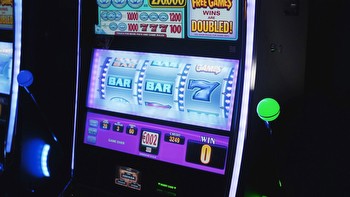Michigan online gambling revenue hits record $2.30bn in 2023

Revenue for 2023 was 18.3% higher than the $1.98bn generated in Michigan in 2022. It also far exceeds the $1.40bn from the first year of legal betting in 2021.
Reported figures include licensed commercial and tribal igaming operators in Michigan.
Breaking this down, $1.90bn of total revenue came from igaming and $420.4m gross sports betting receipts. Both of these figures were also new annual records, despite total annual sports betting handle remaining steady at $4.60bn.
After accounting for promotional deductions, adjusted gross receipts (AGR) from igaming and sports betting was $1.96bn. This was up 18.8% from the previous year’s total.
AGR from igaming amounted to $1.73bn, with adjusted gross sports betting receipts hitting $223.5m.
In terms of tax, operators paid $369.8m in total tax. This includes $354.0m in igaming taxes and fees and $15.8m from the sports betting sector. Detroit’s three casinos paid $95.8m in total igaming and sports betting tax, while tribal operators paid $43.1m to governing bodies.
Michigan smashes monthly records in December
Aside from record annual revenue, Michigan ended 2023 on a high with all-time high figures in December.
Total gross online gambling revenue in December hit $181.4m, the highest monthly total to date. This was 20.4% ahead of December 2022 and more than November 2023.
Growth was driven by the igaming sector, where gross revenue reached a record $181.4m. Gross sports betting receipts also reached a new monthly high of $61.1m during December, with handle also hitting a record $583.0m.
After adjustments, total online gambling AGR was $198.4m, up 29.8% year-on-year. Igaming AGR hit $163.3m and adjusted gross sports betting receipts $35.1m.
Tax-wise, monthly payments amounted to $36.7m, with $34.1m from igaming and $2.6m sports betting. Detroit casinos paid $9.4m and tribal operators $4.3m.
Detroit casino revenue down in 2023
The online gambling results follow the publication of figures for land-based casino gaming in Michigan. Revenue from the three commercial casinos in Detroit slipped 3.1% year-on-year to $1.24bn in 2023.
Declines were reported across table games and sports betting. Slots revenue was $984.1m, marginally higher than $983.7m in the previous year. However, table games revenue was 12.7% lower at $238.7m and retail sports betting qualified adjusted gross receipts (QAGR) fell 25.7% to $14.0m.
As for December, total market revenue was up by 5.7% to $116.2m. Table and slots revenue climbed 2.9% to $111.4m and sports betting QAGR rocketed 200.0% to $4.8m.
Michigan takes action over illegal operators
In other news, the Michigan Gaming Control Board (MGCB) has sent cease-and-desist letters to three online gaming companies deemed to be operating in the state illegally.
New York-based PredictionStrike Inc, VGW LuckyLand in California and Sweepstakes Limited (Stake.us) of Cyprus were all named by the MGCB. Each has been contacted by the regulator in recent months.
The MGCB said the operators were offering some form of online gaming in Michigan without licences to do so legally.
PredictionStrike was flagged for igaming and sports betting, Stake.us for online lottery and VGW for offering games where players wager something of monetary value for the opportunity to win something of monetary value.
Regulator slams operators for breaking laws
By offering such services, the MGCB said each operator breached certain laws. These include the Lawful Internet Gaming Act, Michigan Gaming Control and Revenue Act and the Michigan Penal Code.
However, the MGCB also noted the operators have since taken steps to prevent Michigan residents from gambling on their websites.
“Gambling regulations are in place for a reason and illegal gambling operations are not welcome in Michigan,” MGCB executive director Henry Williams said.
“We do not want businesses who skirt the law having access to Michigan citizens and leaving them vulnerable because they are playing on unregulated sites that leave them with no recourse and that siphon funds away from communities because they are not paying taxes like a regulated, legal gambling establishment would.”
























